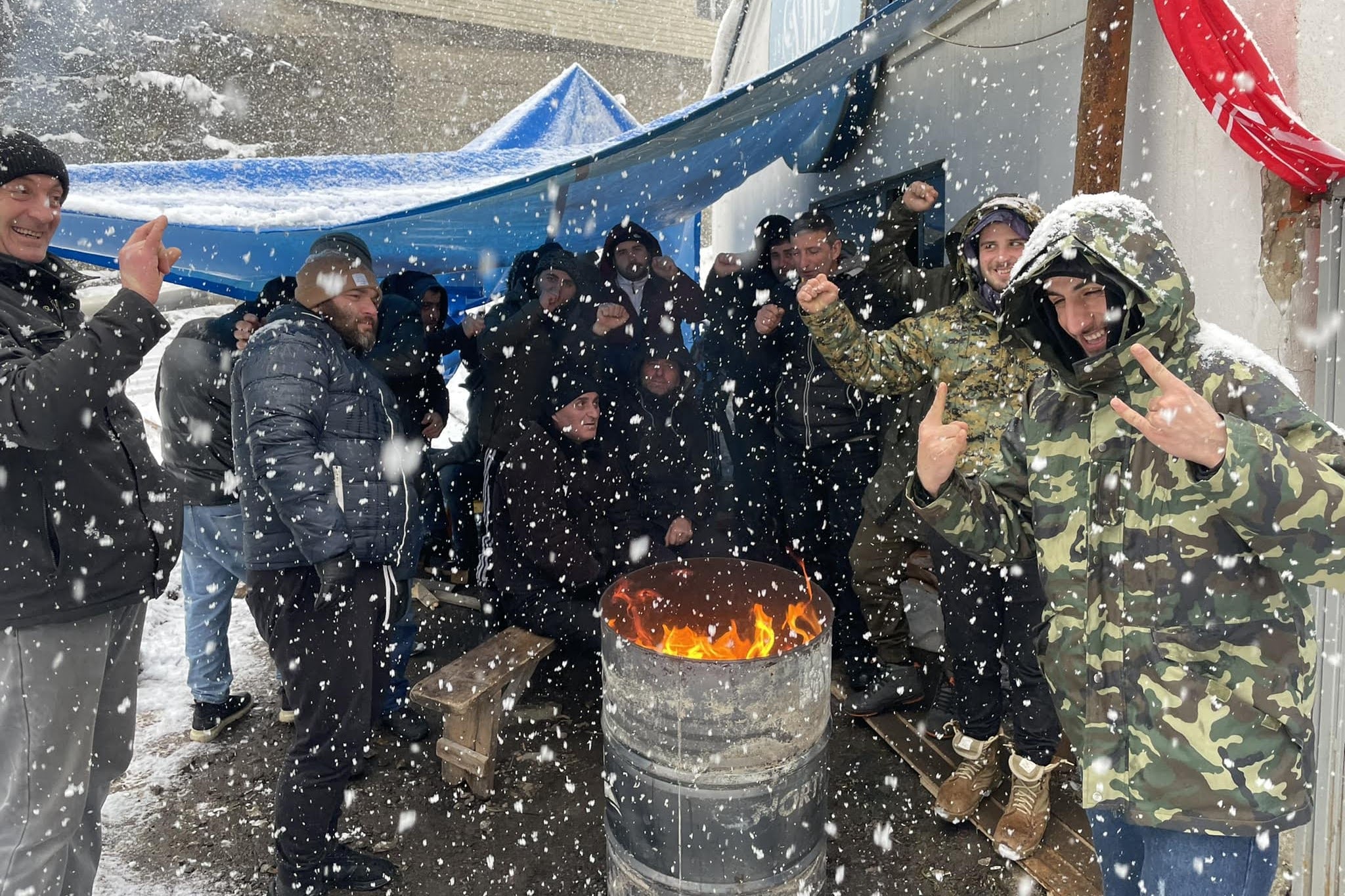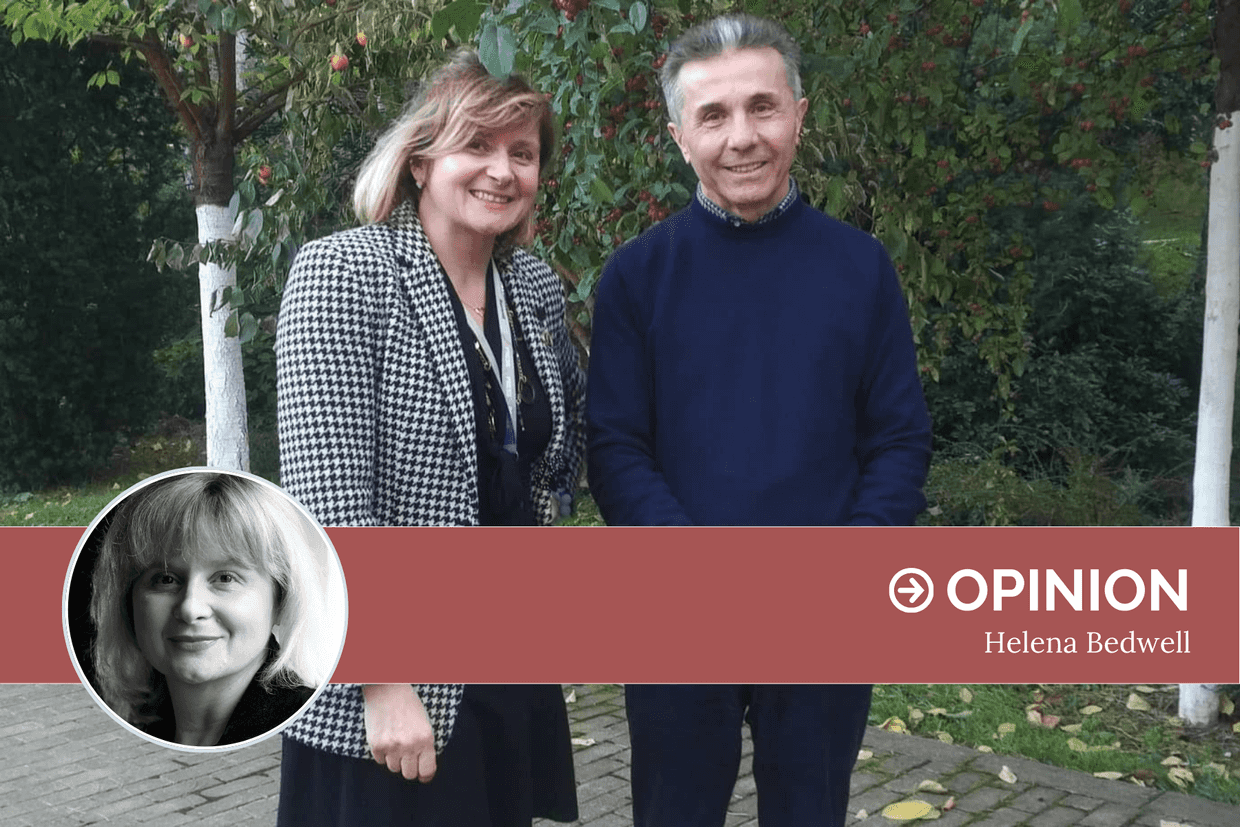
A five-week strike by employees of Georgia’s Sairme Mineral Waters company has ended after the company agreed to their key demands.
Both Sairme and Labor, a union of agriculture, trade, and industrial workers that represented 32 Sairme employees, have confirmed that they reached an agreement on 20 March that put an end to the 36-day strike.
The Sairme factory is located near the namesake Georgian resort town in southwestern Baghdati municipality, 50 kilometres south of Kutaisi.
According to Labor, which belongs to the larger Georgian Trade Union Confederation (GTUC), collective bargaining resulted in a 22.5% raise in the workers’ salaries, with night shift pay increasing by 34%. Pay for overtime work and shifts during public holidays will increase by 25%, the union reported.
GTUC’s lawyer, Tamila Gabaidze, told OC Media that the factory’s operators, who make up most of its staff, were previously officially on salaries of ₾1,058 ($411) a month, but usually actually received ₾800–₾900 ($310-$350) because of frequent disruptions to work due to malfunctioning equipment.
Gabaidze added that Sairme had refused to compensate workers for working days missed as a result of technical disruptions, which the lawyer said violated Georgian labour legislation.
‘A company has the right, for instance, to suspend the operation of the factory for two days, but for you, as a worker, it constitutes “enforced idleness” because you are still supposed to earn for that time’, said Gabaidze. ‘The employee has to compensate workers for that time because it’s their duty to provide workers with technical equipment.’
However, GTUC announced that they had successfully secured both raises in salaries and a commitment to tie salaries to inflation, both changes fiercely resisted by the company earlier this year.
Throughout the strike, Sairme did not respond to OC Media’s repeated requests to comment. However, the company publicly confirmed last night that the dispute had been resolved and that striking employees would resume work on 22 March.
According to Labor’s announcement, the collective agreement signed by the union and the company yesterday night also ensured that each striking worker would be compensated ₾800 ($311) for the five-week strike, something not provided by Georgian labour laws.
According to the Georgian public registry, Sairme Mineral Waters is owned by Iakov Gvichia and managed by Ianina Mashkova, both of whom have Russian citizenship.
Battling blizzards, police, and dwindling public attention
Around 30 workers went on strike on 13 February to demand a 30% salary increase, the annual indexation of salaries to inflation, and for ‘dire’ safety and sanitation problems in the factory to be addressed.
The striking workers claimed safety problems included a lift falling down its shaft and workers receiving electric shocks.
According to GTUC’s Tamila Gabaidze, the union helped workers to go on strike after a month of negotiations between the workers and their employers, which was followed by an unsuccessful 21-day mediation process by the Ministry of Labour, Health, and Social Affairs shortly before the strike began.
The launch of the strike coincided with a snowstorm, which complicated the striking employees’ round-the-clock blockade of the factory, but also curtailed the company’s operations due to transport issues.

On the first day of the strike, Georgian news outlet Fortuna quoted the deputy director of the company, Levan Kasradze, announcing that only 27 out of their 62 employees were on strike and that production would not stop. Sairme later reportedly announced job openings but failed to remain fully operational.
Meanwhile, Labor led a campaign of shaming those they referred to as strike-breakers, who may have included local residents hired without contracts for short-term work.
Throughout the 36 days of the strike, the company repeatedly used police force to unblock the entrance to the factory for vehicles.
GTUC told OC Media that police detained two striking workers, who later received warnings from the local court after spending a night in a detention facility. However, the union noted that Sairme had committed to retract all their appeals to the police against their employees.
The strike garnered scant public support and media attention during its course, but was supported by the leftist Georgian groups Fair Labor Platform and Khma (‘voice’). On 20 February, Khma’s members occupied the head office of Sairme in Tbilisi to raise awareness about the issue.
Sairme workers stopped short of going on strike in January 2021 after unionising, but reached out to Labor in December 2022, claiming the company had failed to address their grievances.
Shako Kobalia, one of the striking Sairme employees, noted on 18 March that he had worked for the company for four years without a contract or access to basic labour rights, like holidays or the right to parental leave.









